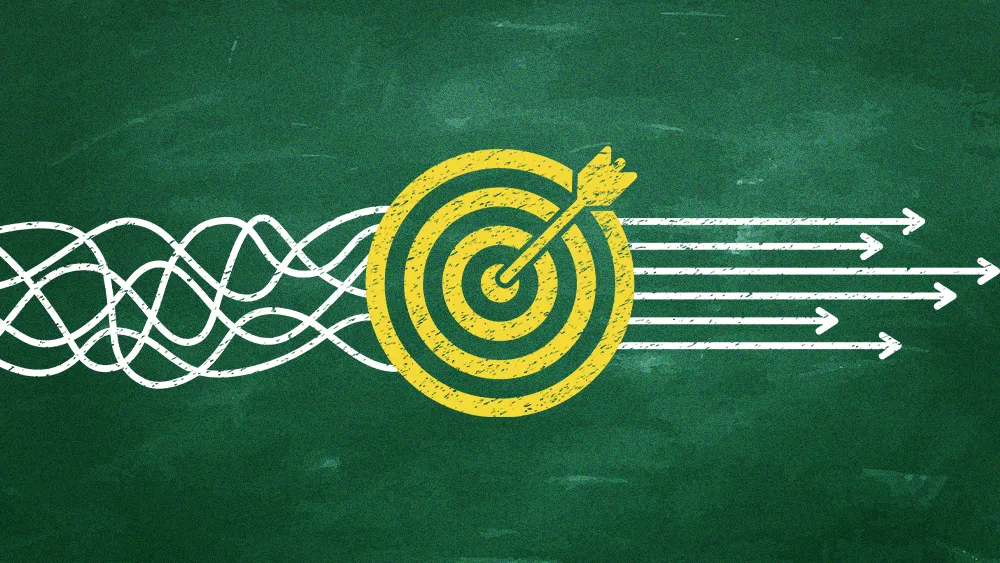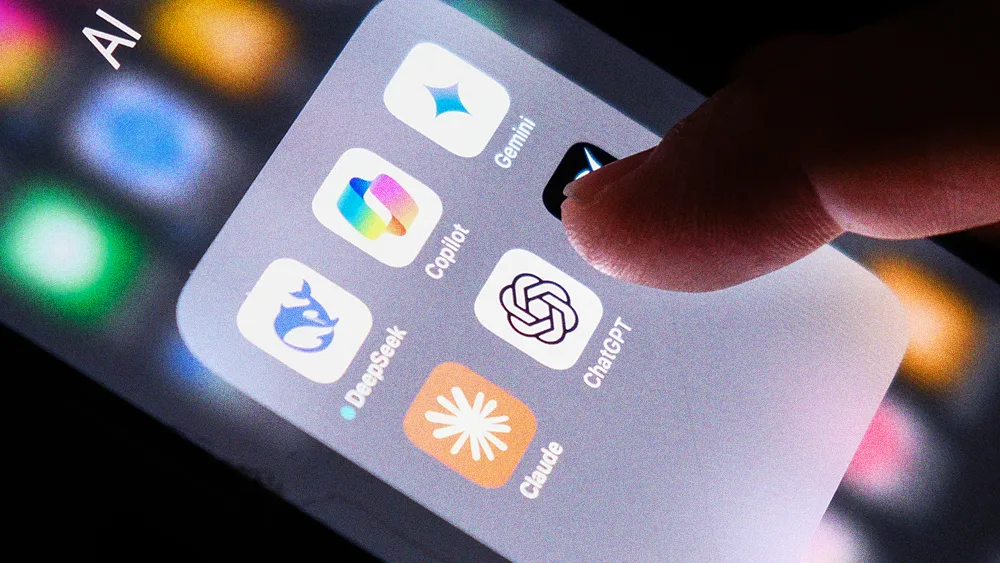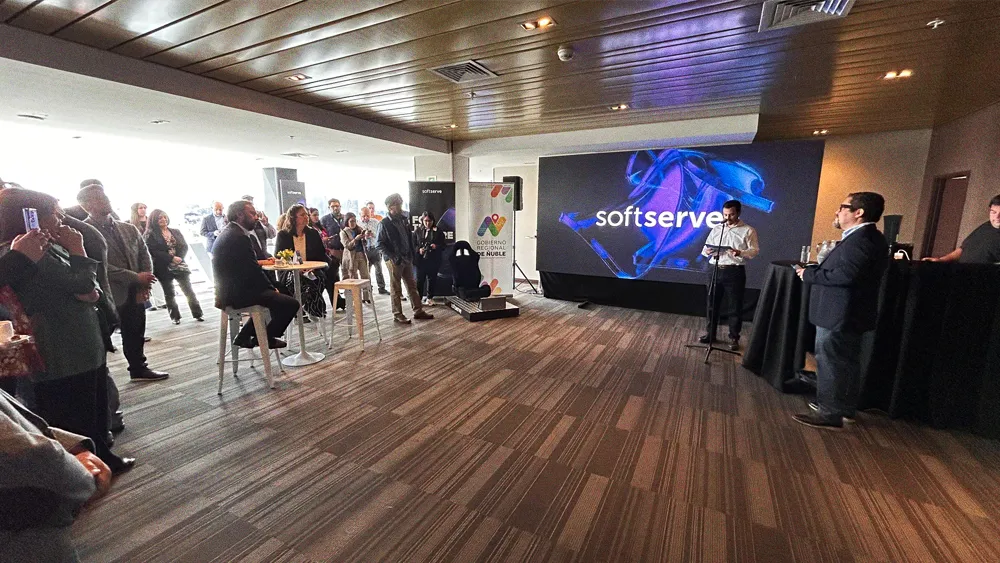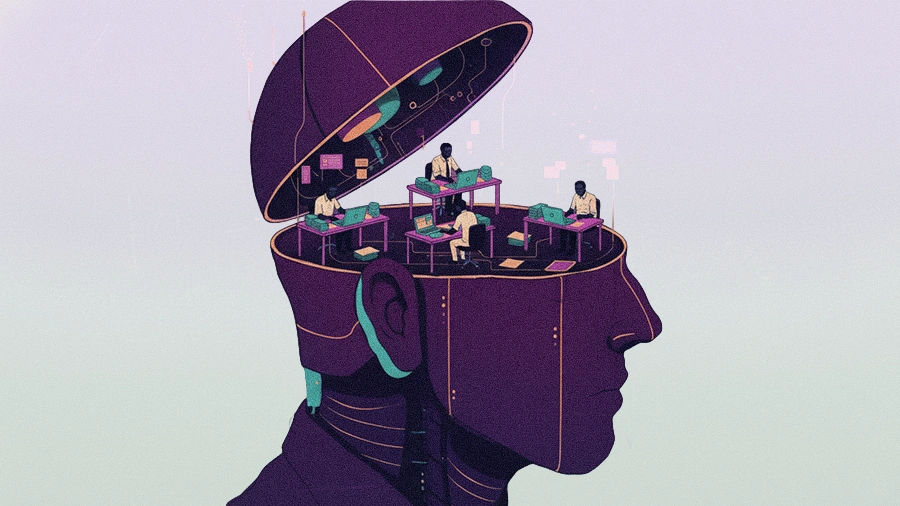Microsoft’s Copilot goes all in on ‘digital labor’ with AI for complex knowledge work
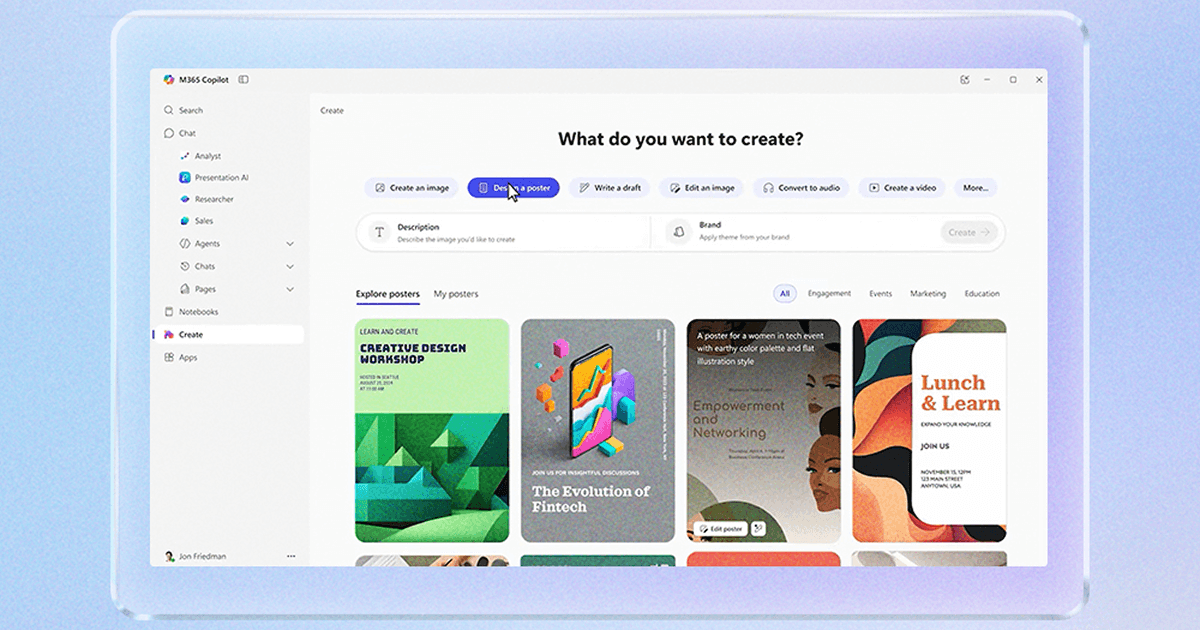
Key Points
Microsoft launches Microsoft 365 Copilot Wave 2, focusing on “human-agent collaboration” with new AI tools.
The update introduces an Agent Store and Skills agent, potentially disrupting standalone HR platforms.
Enhanced features like Copilot Search and Memory offer personalized, context-aware assistance.
The era of the simple AI assistant is fading as tech giants push aggressively to embed “digital labor” directly into corporate workflows. Microsoft has made its biggest move yet in this direction, overhauling its Copilot platform with a suite of specialized AI agents and tools designed to augment, and potentially automate, complex knowledge work.
Agent ecosystem: The company announced its Microsoft 365 Copilot Wave 2 spring release on April 23, centered on fostering what it calls “human-agent collaboration.” Central to the update is a new Agent Store, designed as a hub for discovering and deploying pre-built AI agents from Microsoft, and partners like Jira and Monday.com.
Kicking things off, Microsoft is rolling out its previously previewed Researcher and Analyst agents via its Frontier early access program. These “reasoning agents,” powered by OpenAI models, aim to tackle multi-step research and data analysis tasks. This push aligns with findings from Microsoft’s 2025 Work Trend Index, released simultaneously, which found 82% of business leaders expect to use AI agents to handle increased workload demands.
Targeting HR tech: In a move signaling Copilot’s expansion into specialized business domains, Microsoft also unveiled its new Skills agent, powered by a generally available People Skills data layer. This system infers employee skills based on their Microsoft 365 activity, allowing managers and colleagues to find experts or staff projects using Copilot chat.
As noted by HR tech analyst Josh Bersin, this integration directly within the Microsoft ecosystem has the potential to disrupt the existing market for standalone skills platforms from HR software vendors, potentially commoditizing their offerings by providing an embedded alternative for talent mapping and management. The system can also map to LinkedIn’s skills taxonomy, consolidating profiles.
Smarter, deeper integration: Beyond agents, the Copilot update aims for tighter integration into daily workflows. A new Copilot Search feature promises enterprise-wide search capabilities, pulling context-aware answers from data across various company apps, including third-party sources like Google Drive, Slack, and ServiceNow. Copilot is also gaining Memory and personalization features, allowing it to learn user preferences and work patterns from chats and profiles to provide more tailored assistance. Copilot Notebooks let users ground the AI on specific collections of documents, notes, and websites, for focused analysis and action.
Governance and trust: This deeper embedding of AI, particularly features like Memory and cross-app Search, inevitably raises the stakes for data governance and user trust. Microsoft emphasizes that Memory is user-controlled and private, and highlighted updates to its Copilot Control System for IT administrators, including tools for managing agent deployment and data security policies via Purview.
Despite the assurances, the increasing sophistication and autonomy of AI tools is inevitably fueling ongoing concerns about potential over-reliance and the erosion of critical thinking skills – a risk highlighted in recent research involving Microsoft researchers, suggesting users may overly trust AI outputs, especially for routine tasks. Ensuring workers critically evaluate AI suggestions remains a key challenge.
Availability and outlook: While the Researcher and Analyst agents are rolling out now to Frontier program participants, Microsoft says most other Wave 2 innovations will begin reaching customers in late May. The release also includes a new Create experience leveraging OpenAI’s GPT-4o for AI image generation within brand guidelines, and upcoming integration of the dedicated Copilot key on Windows 11 PCs for quicker access.
Collectively, the updates represent a significant step in Microsoft’s strategy to make AI agents an integral, managed part of the enterprise environment.
Related articles
TL;DR
Microsoft launches Microsoft 365 Copilot Wave 2, focusing on “human-agent collaboration” with new AI tools.
The update introduces an Agent Store and Skills agent, potentially disrupting standalone HR platforms.
Enhanced features like Copilot Search and Memory offer personalized, context-aware assistance.
The era of the simple AI assistant is fading as tech giants push aggressively to embed “digital labor” directly into corporate workflows. Microsoft has made its biggest move yet in this direction, overhauling its Copilot platform with a suite of specialized AI agents and tools designed to augment, and potentially automate, complex knowledge work.
Agent ecosystem: The company announced its Microsoft 365 Copilot Wave 2 spring release on April 23, centered on fostering what it calls “human-agent collaboration.” Central to the update is a new Agent Store, designed as a hub for discovering and deploying pre-built AI agents from Microsoft, and partners like Jira and Monday.com.
Kicking things off, Microsoft is rolling out its previously previewed Researcher and Analyst agents via its Frontier early access program. These “reasoning agents,” powered by OpenAI models, aim to tackle multi-step research and data analysis tasks. This push aligns with findings from Microsoft’s 2025 Work Trend Index, released simultaneously, which found 82% of business leaders expect to use AI agents to handle increased workload demands.
Targeting HR tech: In a move signaling Copilot’s expansion into specialized business domains, Microsoft also unveiled its new Skills agent, powered by a generally available People Skills data layer. This system infers employee skills based on their Microsoft 365 activity, allowing managers and colleagues to find experts or staff projects using Copilot chat.
As noted by HR tech analyst Josh Bersin, this integration directly within the Microsoft ecosystem has the potential to disrupt the existing market for standalone skills platforms from HR software vendors, potentially commoditizing their offerings by providing an embedded alternative for talent mapping and management. The system can also map to LinkedIn’s skills taxonomy, consolidating profiles.
Smarter, deeper integration: Beyond agents, the Copilot update aims for tighter integration into daily workflows. A new Copilot Search feature promises enterprise-wide search capabilities, pulling context-aware answers from data across various company apps, including third-party sources like Google Drive, Slack, and ServiceNow. Copilot is also gaining Memory and personalization features, allowing it to learn user preferences and work patterns from chats and profiles to provide more tailored assistance. Copilot Notebooks let users ground the AI on specific collections of documents, notes, and websites, for focused analysis and action.
Governance and trust: This deeper embedding of AI, particularly features like Memory and cross-app Search, inevitably raises the stakes for data governance and user trust. Microsoft emphasizes that Memory is user-controlled and private, and highlighted updates to its Copilot Control System for IT administrators, including tools for managing agent deployment and data security policies via Purview.
Despite the assurances, the increasing sophistication and autonomy of AI tools is inevitably fueling ongoing concerns about potential over-reliance and the erosion of critical thinking skills – a risk highlighted in recent research involving Microsoft researchers, suggesting users may overly trust AI outputs, especially for routine tasks. Ensuring workers critically evaluate AI suggestions remains a key challenge.
Availability and outlook: While the Researcher and Analyst agents are rolling out now to Frontier program participants, Microsoft says most other Wave 2 innovations will begin reaching customers in late May. The release also includes a new Create experience leveraging OpenAI’s GPT-4o for AI image generation within brand guidelines, and upcoming integration of the dedicated Copilot key on Windows 11 PCs for quicker access.
Collectively, the updates represent a significant step in Microsoft’s strategy to make AI agents an integral, managed part of the enterprise environment.
